By Madronna Holden
“You cannot protect the environment unless you empower people, you inform them, and you help them understand that these resources are their own, that they must protect them.”
–Wangari Maathai
Growing up in her Kikuyu village in the sight of Mt. Kenya, Wangari Maathai learned to revere that mountain as the glacial source of rivers and rain that sustained her land and people. When her people climbed that peak, they walked barefoot out of reverence, for they felt they were approaching the realm of God.
Heaven, Maathai asserted, is right here, in our lives and the presence of the other lives of all species that share the earth. Thus the Kikuyu recognized the presence of divinity on the mountain. As long as the people looked up and saw the clouds on the top of Mt. Kenya (that mountain, Maathai wrote, is a “shy mountain” and usually covered), they knew they could rely on the rains to come and the rivers to run full.
That reliance has grown shakier as the glaciers recede with climate change and logging denudes the land. Maathai asserted that the land does not like to be “naked” in this way. It wants to be covered with green life: with the trees that also yield protection for water resources, food, firewood and building materials for local villages. By tradition, her Kikuyu people never cut the streamside trees whose roots protected the abundance and clarity of precious water resources.
From her culture, especially as passed on to her from her grandfather, Professor Wangari Maathai of Nairobi University, the first African woman to hold a Nobel Prize and the first person to earn that prize as an environmentalist, learned to look at the mountain and “understand the future”. Her reverence for the mountain motivated her work in the Greenbelt Movement, along with her continued emphasis on the relationship between social and environmental justice for the people of Kenya– as she emphasized in her Nobel Prize acceptance speech.
In 1977, she founded the Greenbelt Movement, ultimately responsible for planting 47 million trees in Africa and billions of trees worldwide. Such planting was primarily the work of poor women carefully tending and watering their trees.
Without culture, Maathai wrote, humans have no real security in the world and easily succumb to the lure of material goods as a short term “fix”. It is a poor substitute for real security. Maathai acknowledges there are negative things in some African cultures—but also positive ones that counteract the colonial assertions of African “backwardness”. Essential among these is the ways in which traditional peoples know how to sustain their lives and health of their lands together.
As the current tribute to her life on the website of the Greenbelt Movement states, Wangari Maathai’s experience increasingly supported her view that “poverty and environmental destruction” were intertwined with “deeper issues of disempowerment, bad governance, and a loss of the values that had enabled communities to sustain their land and livelihoods, and what was best in their cultures”.
Founding and guiding the Greenbelt Movement that included over 900,000 African women was not always easy. Maathai and other Greenbelt members were consistently jailed and harassed by the authoritarian regime of Kenyan president Daniel arap Moi.
Even as Maathai considered environmental protection and human justice intertwined, she continued to speak out for both. At one point she was beaten unconscious by police in a demonstration seeking the release of political prisoners—a demonstration that ultimately resulted in the release of 51 men.
Even as leaders were by tradition accountable to their people, Maathai used her own social status to support the cause of justice, as when she co-founded the Nobel Women’s Initiative with five of her sister Nobel Laureates to advocate for peace, justice and equality worldwide.
It is with good reason that women were at the center of Maathai’s priorities as she developed ways to empower poor women globally. Elected parliamentary representative after the demise of the authoritarian Moi regime, Nobel Laureate, professor at Nairobi University (the first woman to assume that position), winner of the Order of the Rising Sun (Japan, 2009), the Legion D’Honneur (France, 2006), and Elder of the Golden Heart and Elder of the Burning Spear (Kenya, 2004, 2003), the Nelson Mandela Award for Health and Human Rights (2007), the Kenya National Commission on Human Rights Lifetime Achievement Award (2006), the Sophie Prize (2004), the Goldman Prize (1991), the Right Livelihood Award (1984), and honorary doctorates from Yale University and Morehouse College in the U.S., Ochanomizu University in Japan, and the University of Norway, Maathai still could not obtain a divorce from her husband who protested that she was “too outspoken for a woman”. Indeed, she was jailed for criticizing the judge who failed to grant her that divorce.
From the time that as a child Maathai lived in terror of the crushing violence of colonial authorities putting down the Mau Mau insurgence, Maathai experienced firsthand the effects of such violence on women and children. Still she was tireless in enacting her vision even in the face of such violence. “Every person who has ever achieved anything has been knocked down many times”, Maathai wrote, “But all of them picked themselves up and kept going, and that is what I have always tried to do.”
Sadly, the world has just lost this remarkable leader though ovarian cancer. But in her 71 years on this earth, she left a powerful legacy. Her example is a distinctive one for meeting the environmental and social crises we currently face.
She taught us the importance of holding to our vision in the face of overwhelming odds—even as she worked in her own life to supplant the violence levied against her and the earth with compassion and justice.
Maathai modeled the way in which a simple act such as planting and caring for a tree can give poor women their power back at the same time that it can change the world for the better. And multiplied in community, such an act can become billions strong.
The roots of the billions of trees newly planted in Wangari Maathai’s wake are testimony to the hope and persistence that each of us might express in our lives, wherever and whoever we are.
————————
I want to acknowledge my former student Julie Bovett for emailing me about the sad fact of Wangari Maathai’s passing.
Filed under: Contrasting worldviews, environmental philosophy, worldviews | Tagged: culture and environment, environmental justice, Wangari Maathai |








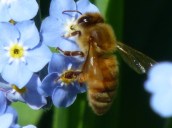










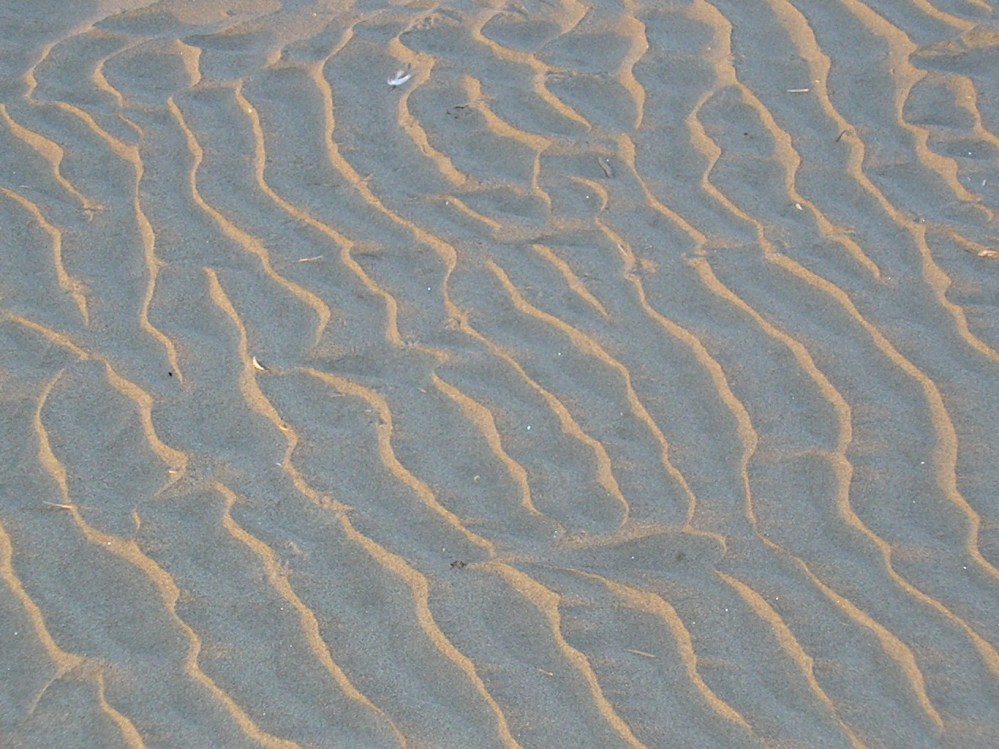
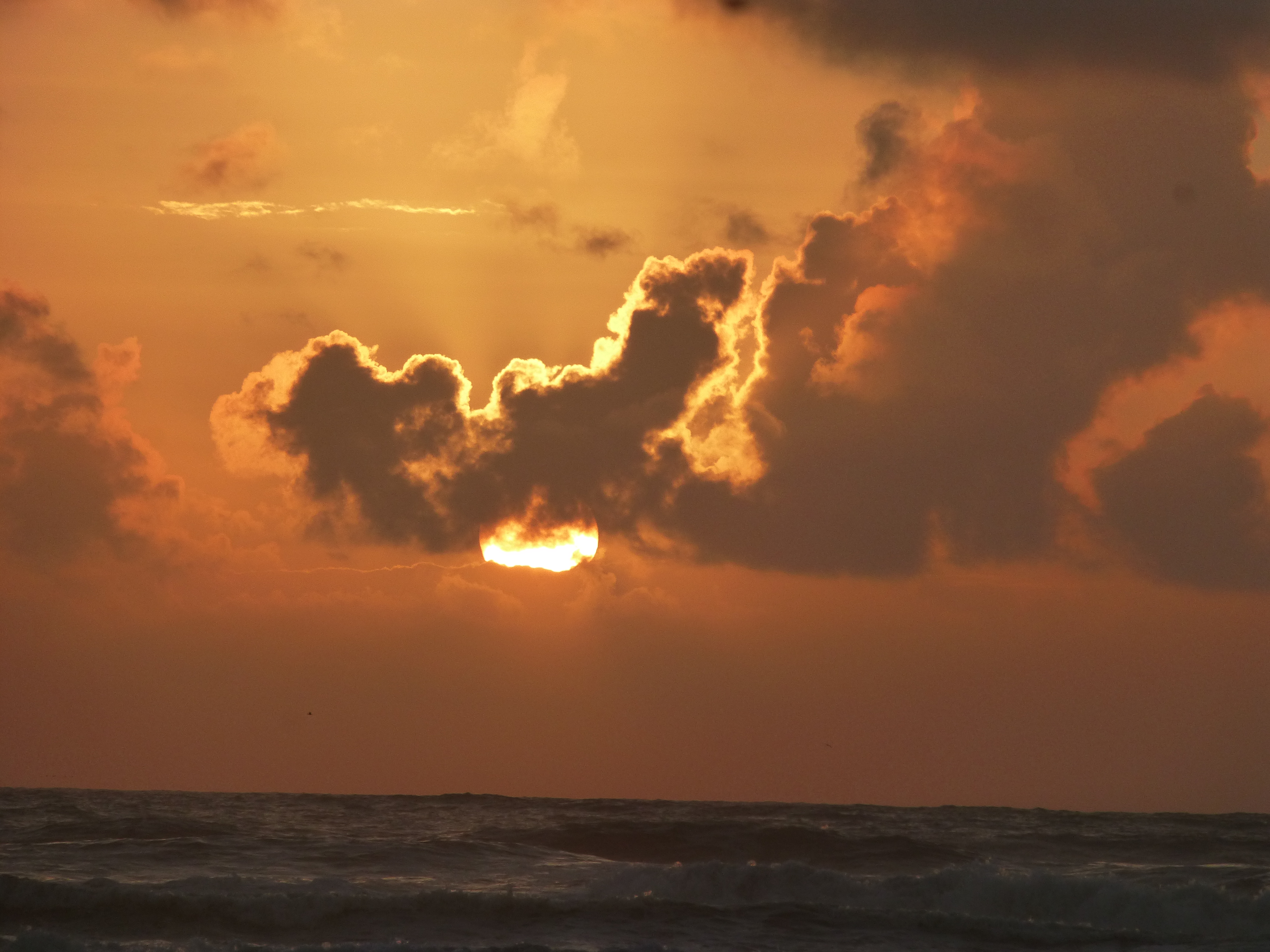




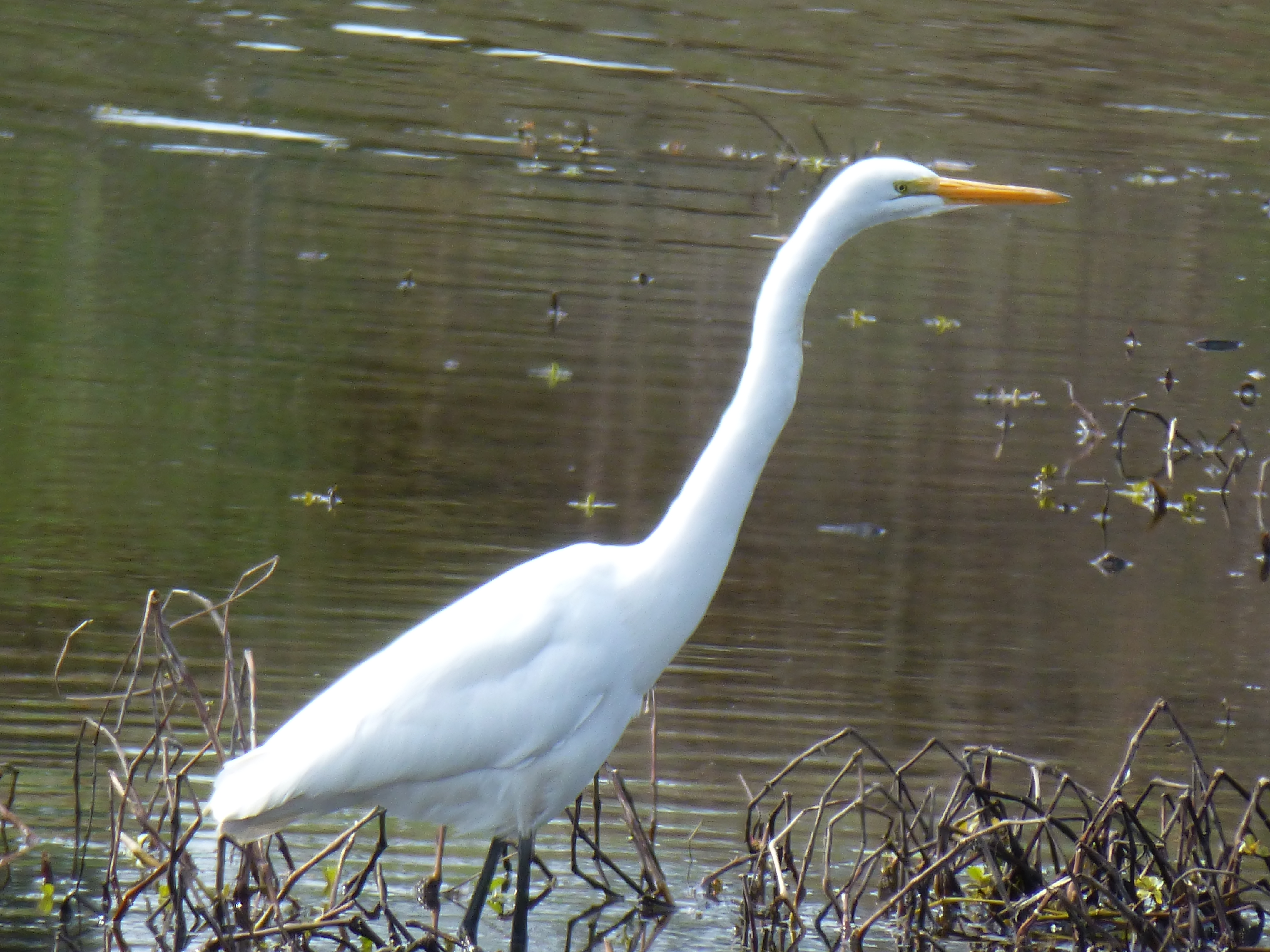







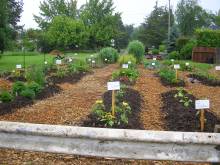
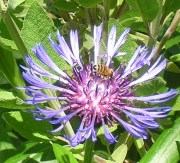
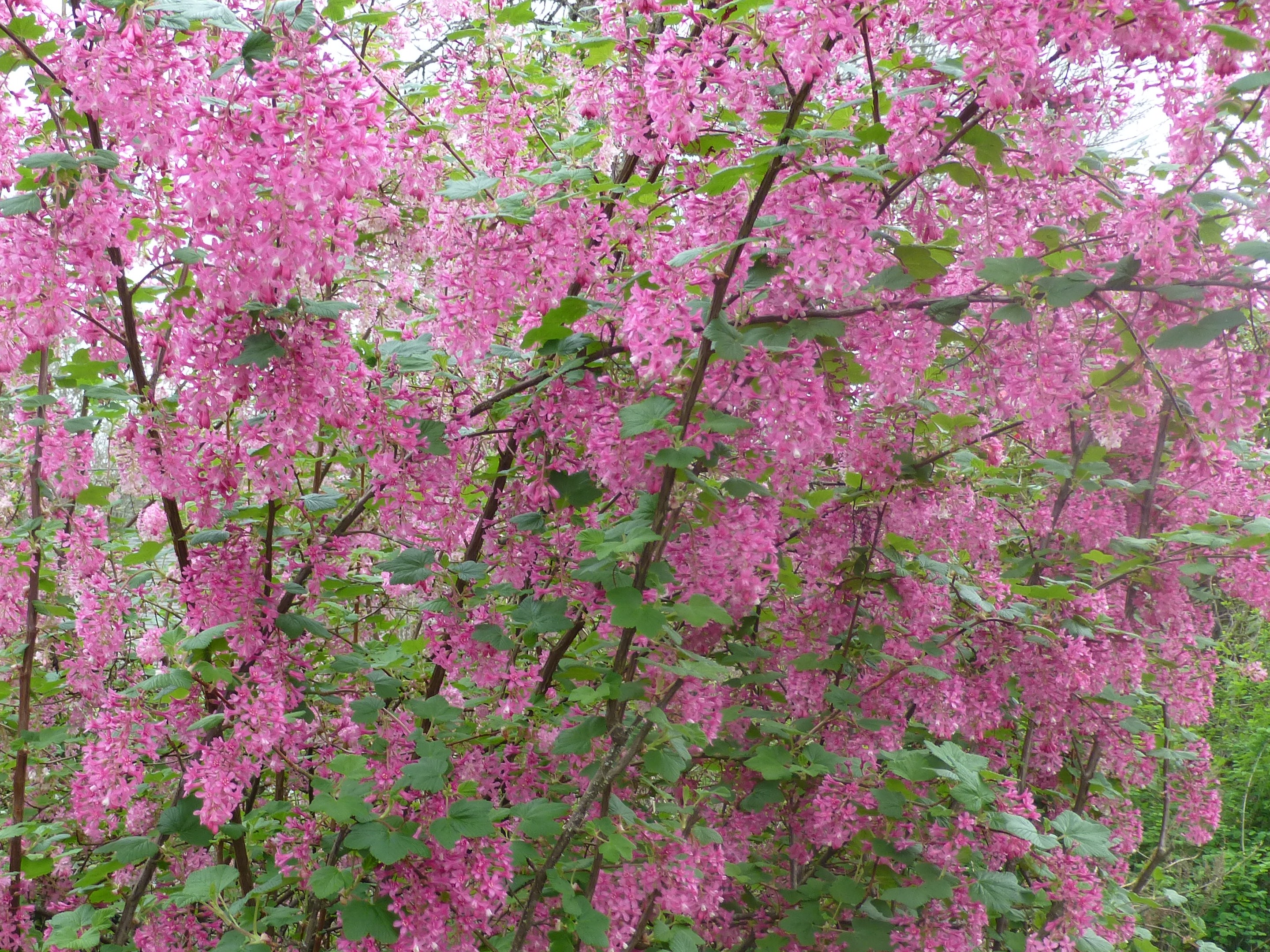


This is a sad day for environmentalist everywhere. Being a college student and majoring in environmental science it can be very depressing to learn and read about all the terrible environmental injustices that occur daily. But Wangari Maathai was one story that I have read many times in my classes and it was always one that was inspirational. It was a light of hope in the middle of all you hear about humans and the destruction we cause. It saddens me that Wangari Maathai passed. It ends a legacy, but at least there is a legacy. Although sad, she will always be remembered and her movement will continue. It is people like her that make me want to do more than just sit in my house and do nothing.
It still amazes me that a women who came from such a poor nation and lived a life that was surrounded by violence did make such a difference. It makes me feel so selfish because I know that I have had so much more wealth and opportunity and yet have not made a difference. I hope that one day I can accomplish even half of what she did.
Hi Laura, thank you for your compassionate comment. Maathai’s passing is sad indeed. I hope that her legacy inspires you to honor yourself and your personal possibilities and vision. Her legacy does mean the end of her physical presence, and yet there is so much that remains of her work as she passed on her personal vitality and leadership. Her death does remind us that we each have only so much time in this life to put our gifts to work.
I wouldn’t want you to think that you have made no difference– sometimes the differences we make come in small ways we may not recognize at the time. That is not to say, of course, that you do not feel you are capable of more.
Hi Laura,
When I see how others put themselves on the line I often feel guilty too. I would like to say I have done much in my own way to help change things. I have picked my little political niche to try and invoke those changes: feminism. However, I wish I could clone myself and cast a wider net! Lately, as I have been busy with other things, I have spent more time as an armchair politician than activist. I am thankful to read inspiring stories such as these as I take my life in new directions—stage two if you will. I am sure you will do the same. Life is a never ending cycle of reinventing ourselves. We can effect a great many changes in that lifetime.
Nice response, Rebecca. We could do worse than to “re-invent ourselves” with such models as Maathai!
Thank you for that and I do feel guilty because of what I see others doing and I know I can do more. I also know that I am doing what I can with what I have right now. As you have tried to change a little something with feminism, I have tried with being a vegetarian. This is something that I’ve done for three years now and I am proud to say that. I know it does do something, I just want to be doing something more. Thank you again though for you inspirational words.
Thank you for your kind follow up comment here, Laura. Most of us could do more and many of us are struggling with just what that might be– but at the same time it is important NOT to assume we have done nothing just because we have not done everything.
Hello Laura,
I think that the guilt and sometimes paralysis we sometimes feel in the accomplishments of others is a reflection of the competitive culture many of us live in the west. We can learn to take strength and pride from the work of others, in our shared humanity and caring about the natural world, which is actually the whole world. We do have a responsibility to be aware of the privilege we have as American women, and try to not take advantage of that privilege in ways that hurt others. I, however, don’t think we have a responsibility to feel bad about the place we find ourselves in the world. Competition and guilt for “not doing enough” can stop us from the small things that we can be doing every day. The lesson that I take from the amazing life of Wangari Maathai is that the small things do add up to significant changes to the world. The way we treat each other and ourselves, the things we buy and abstain from buying, the words we choose to use, all of these things can have a lasting positive impact on the world. I hope that we can all share in the joy of each others accomplishments and do what we are able to change the world for the better.
Nice perspective, Rosie. If our worldview prompted us instead to realize the intrinsic value of all natural lives, we might not only realize the unique gift each of us have to give back to our world– but the ways in which our choices touch all other lives.
Fantastic outlook, Laura. Thanks!
As tragic as it may seem, I have never heard of Wangari Maathai until now. Perhaps I’m not as aware as I wish I was or maybe she merely slipped passed my readings. Either way, from purely reading this snippet, you can see that her contributions were astounding. You would think I would have stumbled upon her somewhere and it’s distressing that I learned about her only due to the fact she passed away. The woman appeared to not only accomplish great things for the environment and for women but also inspire many to follow in her stead. She was amazing and (thankfully) it appears she was recognized for it with her many awards, all of which she deserved. I find her death sad although expected (even if not by cancer) — she was old, you see. After the many times she was knocked back and kicked around, it’s nice to see that she made it as far as she did. Maathai was apparently a very brave individual. I can only hope there will be more people to continue her cycle of well-doing, generosity, decency and charisma. She was a bearer of hope and good deeds. A terrific leader. From all that she did for the world, she will certainly be remembered and live on through it.
Now, after digesting what I read from this article, I obviously found it necessary to do my own search on her. I wanted to be capable of posting an appropriate response.. as you can see, my comment is still lacking although I did discover more about her. She was fearless and radiant! And known as the “tree woman” — which fits considering she was the founder of the Green Belt Movement. I think she had a sense of humor, as well; instead of dropping the last name of the guy she divorced, she added an ‘a’. (I found it amusing, at least.) Maathai was obviously extremely persistent in what she believed was right and the thing to do. She was admirable and someone you could truly aspire to be. I wish I had learned about her sooner. It would be an honor to accomplish half of what she did, I think.
Thanks for your comment, Jessica. It is never too late to learn about (or be inspired by) such a remarkable woman! I appreciate the fact that you did your own research to learn a bit more about her– and I very much like the adjectives with which you describe her: legacy: “well-doing, generosity, decency and charisma” and her person: “fearless and radiant”. We could hardly do better than to help continue the legacy of a leader with such attributes.
And just a side note, age 71 doesn’t seem to me to place anyone at death’s door automatically!
Jessica,
I, too, was extremely impressed by her ability to reach such an old age. Facing so many obstacles, she still managed to reach an age many people do not – and accomplishing so many good things in this time. We, in Western Society, tend to lead such short lives and we live much of them for ourselves. She seemed to live for others and fought for others how she would fight for herself. She was willing to sacrifice and put her life on the line just to fight for other people. This selflessness is so inspiring, particularly when I think of all of the little things I get wrapped up in and how little I am often willing to sacrifice for others.
I also wish I had learned about her sooner – while she was still alive. So many important things have happened in the past with such revolutionaries and many of them have passed. It is exciting to know of a person to follow, such as an author or activist, that is alive and that one can look to see what they are doing and causes they are currently supporting. This makes me want to look into what other women environmentalists/feminists may be doing this kind of work and keep track of their projects and movements.
Once again, you young women, I don’t see 71 as such a ripe old age– or an impressive one to reach. Are you thinking this is an “old” age because of where Maathai lived? In fact, Maathai spent substantial amounts of her life in First World countries, and died of a First World disease, cancer–which may well have been unheard of in pre-colonial Africa. Indeed, industrialization decreased life spans around the world because of things like crowding and pollution–and they are just beginning to be built back up. Though we might also note that there was a lifespan decline in several areas of the US in the last decade, according to recent research by the U of Washington.
Or perhaps you mean you are impressed by her ability to survive prison and beatings? That would be an accomplishment given that other indigenous leaders who worked for the environment and social justice, like Chico Mendes, were tragically murdered so young –as was Martin Luther King in this country.
It is great that Maathai’s work inspires you to look into the lives of other indigenous women leaders who have combined environmentalism with work for social justice. There is a long list, not all of whom are well known, but all of whom deserve to be celebrated, as you indicate.
Thanks for your comment.
I believe, at least for me, her to be “old” in the sense that she survived many things in her lifetime. While she died of a disease, she reached an age that is, what I believe to be, not unheard of for passing of old age. With all the adversity that she faced, it would not have been too surprising to hear that she dies in a prison or from a beating. However, she died at an age that I consider to be a full life-span. She could have certainly lived longer, but 71 years is a substantial amount of time to be alive and learn, (at least to a 22 year old). I believe that, while I would love to live into my 80’s or even 90’s, I wouldn’t complain about passing at 71. Perhaps that is a result of my environment, but that is just my opinion. I read that the average life expectancy for the US is currently 78-79, and that the average life expectancy of Kenya is currently 54. Maybe the reason I was so impressed with her age is because of the place from which she came.
Thanks for your follow up comment here, Amanda. I was wondering if her country of origin had to do with your opinion and wanted to play devil’s advocate a bit in the assumption that indigenous societies (if not ones that are recently freeing themselves from colonial rule) are less long lived than others.
And I would also like to point out that, as you said, so many relevant and changing revolutionaries DID die at a young age – so as a society, I do not think we are used to seeing many of these types of figures live into their old age.
Thanks for this comment as well, Amanda.
And I am just curious how many people you know of that age: as part of the disconnection between generations in our society…
Well, honestly… I do not regularly spend time with anyone not in their mid fifties. My mother and her generation are the oldest I visit/spend time with. Everyone in the generation above her has passed away or lives far away. I don’t know one set of my grandparents, and the other set both died in their 60’s of cancer. I suppose that’s why there is such a gap in the generations – because everyone in generations above me seems to pass before 70. Therefore, when I see someone of that age I feel as though they have lived a long, full life.
Thanks for sharing this, Amanda. It explains a bit– and I should say my experience is very different. I have spent a good deal of time with those in t heir 80s, 90s, and even over 100. My dad is still hale and hearty at 89–and I am hoping (though I likely don’t have a real right to) that he will be around for a few more years yet. I am very blessed to have spent so much time with elders and yet it is still the quality of life rather than the quantity of years that counts most. In this sense, it is great that you feel those around you have “lived a long, full life.”
I meant to say “older” than their mid-fifties. Being 22, the oldest crowd I tend to be around is at work where most people are in their forties and fifties, (I work at a government contracting firm). There are also some people in their 60’s but not a lot.
Thanks for the clarification, Amanda. I didn’t mean to make you belabor the point.
I, too, have not heard of her until she passed. NPR re-ran a wonderful interview with her the weekend after her passing and it made me wish even more that I’d known about her before. Your comment about her sense of humor – in the interview, though I don’t remember any jokes, her voice had a certain sparkle to it. One could hear her smiling as she spoke. When you were doing your research, did you look at pictures of her? She’s nearly always smiling! The most genuine, gorgeous, welcoming smile. You’re right, “radiant” is the word for her. She absolutely radiated strength, compassion, and love.
Thanks for helping fill out more of the vitality of this remarkable woman, Neyssa– how fortunate the world is to have had her among us!
When I think about the personal sacrifices that those such as Wangari Maathai make, I am inspired. It is difficult enough to defy western industrial paradigms, and quite another to do it in the context of one controlled by the patriarchy. In regard to the Green Belt Movement and Maathai’s thoughts on poverty and disempowerment, I would like to touch for a moment on the side-effects of that poverty.
It is often stated that the poverty experienced by indigenous peoples, indeed many cultures on the “outside” of the Western industrial complex, foments desperate acts that run counter to indigenous values: for example, poaching in Africa. I am curious to know what those who have worked with indigenous NGOs think of new projects like the Reduced Emissions from Deforestation and Degradation programme or REDD?
REDD essentially takes money from big time polluting companies and gives that money to those who work to prevent deforestation in their local community. It is believed that this will provide incentive to profit in a way that has a positive impact, and allow indigenous people to continue using indigenous technologies that benefit the earth, preserve cultural traditions and maintain autonomy.
Alva Lim, in an article entitled Forbidden Forest of the Dayak People written for United Nations University, says that some opponents of REDD believe its methods are questionable because it gives polluters permission to pollute without changing their habits (2009). In essence, REDD is not requiring the Western industrial complex to change its paradigm and values. It is still adapting the world to appease profiteering rather than adapting Western human behaviour to the natural world—we will have changed nothing in terms of our counterproductive worldview, simply changed the game. Granted, the outcome is cleaner air, preserved habitat and way of life, but REDD may teach Western culture zero and simply reward our exploits. Does it in fact let us off the hook and allow us to again use the “periphery” for our own benefit? There are many complex questions to be answered. Perhaps I would like to see a few corporate executives getting dirty planting trees and then I might be more convinced there is some repentance.
Thanks for your comment, REDD does have a mixed history– largely revolving around who are its essential decision-makers, Western developers (of any kind) or indigenous peoples.
How would you relate this back to Wangari Maathai’s work and a tribute to her life, values and courage?
From your essay Wangari Maathai is inspirational to me on so many levels. I am so disconnected from land in my urban environment I imagine that looking up at a mountain and being able to gain reassurance from the clouds hiding it, that it would rain, would be such a simple but deeply powerful act. Being married to a man that found her “too outspoken” I wonder what disrespect she encountered in her life, but there she was planting all those trees, being a quiet advocate and still being punished by society. From her quotes it seems she had an understanding about the role of materialism and how the quest and attainment of things can be a sore substitute for personal and cultural identity.
I think that Maathai is indeed inspirational, as you point out, “on so many levels”– I can’t imagine anything more inspirational than successfully holding to one’s values in the face of such oppression– and establishing community as you go.
Thanks for your comment, Erin.
While reading your reply, it came to me that possibly Wangari Maathai’s husband felt intimidated. Men’s ego’s can stretch further then the universe and maybe staying married to her with out her blessing gave him a little power from under her huge shadow?
Insightful perspective, Wil. Thanks for sharing it. Someday perhaps we will live in a world in which we understand the achievements of those we love enlarge us rather than intimidate us.
While Maathai’s passing is sad, her life is something to be celebrated. She lead an incredible fulfilling and amazing life. She lived for so long and made such an incredible impact on the world – she left behind a legacy that is inspiring to women and men everywhere.
What most impresses me about Maathai’s life was her ability to find her views, regardless of those oppressing her. Today in America, most women are feminists. We all believe we should have equal rights and most of us are raised with the ability and support to speak our minds, but that is not how Maathai grew up. For an American women it is so easy to speak out against her patriarchal oppressors because we are born empowered. But, for a woman coming from a developing country that is not the norm – she is not raised with that right or those ideas being taught to her. She had an intrinsic need and capability to represent herself and the women of Africa and helped them better their situation.
The impact that Maathai left is so heavy that there is so much left behind. The fact that the women of Africa still benefit from the trees that the movement she started left behind is a testament to her courage, drive, and impact. Those trees that still stand as a result of her commitment to women, humans, and peace are a reminder to the people that she has helped, as well as to the people she hasn’t that even one person can make a difference. We so often hear about male revolutionaries, like Gandi, but is it refreshing to learn about a female who withstood pain and suffering for other people and stood up against oppressors for what she believed in.
Hi Amanda, Maathai’s life does indeed deserve celebration, though (perhaps it is my own age, it doesn’t seem like she lived for “so long” in dying at age 71, she certainly made the most of her years.
In some ways those trees planted by the Greenbelt Movement are just beginning to show their influence, as they come into maturity. I hope this is a metaphor for influence in the realm of social justice as well.
As you note, her life gives us a model by which to measure the lesser difficulties weighing against our placing our own values into play, living with so much comparative privilege.
And just a wording point here, I would rather call her country a de-colonizing one rather than “developing” one- it was amply “developed” when Maathai’s Kikuyu people took care of their land and their people. It was colonialism that left the terrible legacy of the totalitarian regimes which abused Maathai–and which she saw replaced in her lifetime. I only say this because of the problematic connotations of the idea of “development{” in some circles. I would say, certainly, that removing a totalitarian regime is a form of development.
Thanks for your comment.
Madronna,
Thank you for making that distinction and for adding to our vocabulary. I’ve not liked the terms “developing” or “third-world,” but didn’t know a preferable term.
You are certainly welcome, Neyssa. I appreciate your own thoughtfulness on this forum.
Under the definition that humans without culture are drawn to material goods, our society has no culture. I’m not sure I agree with that, but only because I think I’m disagreeing with the use of the word “culture.” Our society has a culture; perhaps it’s not always a good one, but it is does exist. That said, the oldest cultures in the world have a thing or two (or hundreds) to teach us if we’d only listen.
Did the African tribes have these issues before colonialization?
I wonder who the “Maathai” girls of today are. Where will the next voice of justice come from? Is there someone showing themselves now that you are aware of?
Thoughtful application of the concept of “having no culture” to contemporary industrial society– if obsession with material goods is a symptom of this illness, we certainly exhibit it. You might be interested in the recent Nobel Peace Prize winners, who are women from the Third World:
http://www.csmonitor.com/World/Africa/Africa-Monitor/2011/1019/Nobel-Peace-Prize-winners-Sirleaf-and-Gbowee-reflect-Liberian-women-s-strength. Check it out, these women spearheaded a movement to successfully remove a totalitarian dictator.
And was Africa perfect before colonialism: Africa is a vast continent with a wide range of cultures, some traditions modeling democracy and wisdom more than others– for instance, some cultures in West Africa participated in the slave trade. I like Chinua Achebe’s (Nigerian Nobel Laureate) response when asked if he thought his traditional Igbo culture was perfect (he wrote much on the problems created by colonialism in his country): He said no human culture is perfect: some have just been better than others at fighting the human instincts of self-destruction (which I think of as arrogance and greed).
One thing we do know of Africa is that the San people of South Africa may be the ancestors of all humans today according to DNA testing–and they are a pacifist cooperation-based egalitarian society with tremendous wisdom about their local environment (Indeed, they have thrived there for tens of thousands of years).
WOW! What a spiritual soldier, I admire her tenacity! I have never heard of all trees Maathai and her people planted, I feel ignorant towards the positive stories from Africa. I hate to say some of the cliche’s about Africa, but I’m glad to have read this article. Her efforts show testament that no matter the severity of a problem, their is hope gained in peaceful work.
Thanks for your response to the presence of this “spiritual soldier”, Wil.
And as for the rest, you are not alone in passing over African knowledge and activism. I appreciate your self-assessment in this respect and second your “hope gained in peaceful work”.
I feel the same. I too was ignorant of the life of Wangari Maathai, and the knowledge of her was like a breath of fresh air. I feel for the perils and violence she endured, but the fact that her passion for justice was incomparable is humbling. All too often I learn of environmental and human injustices, and it is very disheartening. However, I feel that the overall story of Maathai was a positive message and imprint. It seems that the roots for her passion could be from her deep relationship and connection with her native lands. She took what was going on personally, and it was personal. She did all she could to stand up for what was right, despite the consequences. Now, if only we could all do the same. I could hardly imagine how different our world would be. Thank you, Wangari Maathai.
And thank you, Rose, for this response to this inspiring woman. I can’t think of a greater legacy than one for which others continue to grateful after we have left this earth.
A beautiful tribute to an amazing woman who empowered so many people – what an amazing woman she was! I think her legacy and her acclamations show the strength a woman (and anyone) can have if they keep persisting at their dreams and desires to make this world a better world.
Thank you for adding to the inspiration flowing from Maathai’s life, Michelle.
When I first read that Wangari Maathai had passed I had never heard of her. After reading about a few events of her life I instantly I was intrigued and inspired, and just a few days later there was a piece on her in my TIME magazine. The women sounded incredible. Just a few weeks ago she was again profiled in TIME, in a piece written by Oprah Winfrey in the fond farewells section in their Person of the Year 2011 issue.
Maathai indeed saw that environmental protection and human justice were intertwined because she considered heaven to be here on earth, all around us. Her gospel was a green one. She saw how we have been very unappreciative toward the earth and towards each other. Maathai sought to change that in whatever way she could and with steadfast determination. She believed so fervently in her cause that numerous personal beatings, jailings, and injustices did not discourage her.
Her life was one of struggle, hardship, and sacrifice, but it was one that all people can learn from. This woman was a beacon of hope to many women across Africa as well as a powerful voice for environmental justice. Oprah Winfrey said it best when she called Maathai, “a giant sequoia in the forest of humanity.”
Thanks for your comment, Trent. I had never heard Oprah’s statement, but it is wonderful!
It was in the TIME Person of the Year 2011 Issue. Here’s the link to the online version 🙂 http://www.time.com/time/specials/packages/article/0,28804,2101745_2102136_2102234,00.html
A lovely tribute of a deserving life: thanks for passing this along!
I thank you for sharing the legacy of Wangari Maathai with me, I hadn’t been aware of her lifelong positive contributions for mankind and nature, she was a remarkable woman. Her resilient attitude—in the face of adversity—inspires me. Also, that fact that one woman catalyzed so much good is astounding. I believe she listened to her inner conscious and guiding light, and did what she knew to be right and just—regardless of the perils that she may have to endure. It makes me happy to know such a righteous person existed and gives me faith in mankind.
You are quite welcome, Rose!
You are so welcome, Rose! My pleasure to pass on just a bit of the life of such a brave, effective, and altogether inspiring woman.
I know, it is so inspiring. I wish she had written of her experiences and her thoughts, about what drove her through the really hard times, how she managed to organize all that. I would have loved to have known her.
She wrote an autobiography called UNBOWED and several other books since. Check it out if you like.
I had heard of her in the news, but I had not realized she was so amazing. It is really hard to imagine how she could accomlish all that. A life put to good use is hard to come by these days. While it is sad that she had to go, it is amazing that she left such a legacy. And it is true, that she has shown us all the power of one and the power of many.
Hi Summer. Maathai was indeed amazing and inspiring–and I hope that a life put to good use is not so very hard to come by. Though most of us will certainly accomplish what Maathai did, we each have something special to contribute to the community of life–and when we find and do this, it seems all of us are capable of lives well lived.
A life to be remember and cherished, not just by humans but by the land as well. I agree 100% with the principal of self-empowerment. Sometimes it takes a small voice for others to realize that they are actually important and that they deserve better when they are treated poorly or as less than another. But the moment they do, is the moment you know that they have finally seen the light.
It holds true for any person. You cannot help someone who needs help unless they are ready to be helped and they feel like they have some control over their life and their problems. This as Wangari Maathai has shown, is the way in which we can also help nurture the land. When we empower one another, we also begin to realize that even one person can make big differences despite how big the project is.
I very much like your idea of our empowering one another, Colette– the potential for a positive chain reaction indeed. It is my sense that every human individual has something essential they and they alone can give to life– and it is a great loss to all of us to undermine this potential.
What an amazing life and legacy left behind by Wangari Maathai. If nothing else, I took away from this story the accumulative effect a single choice can make to protect the environment. For Wangari Maathai, she saw the need to clothe the shy Mt. Kenya in trees which helped not only her mountain but her people. There is power infused in that lesson.
It gets me to think of what I can do to protect my own “Mt. Kenya” here in my own backyard. What a great reminder of the power a single person can have on the world and how much a single choice can turn the tide.
Thanks for confirming this reminder of the power a single individual can have–and thus we should never downplay the value of our own choices.
What an incredible and inspiring woman! She seemed to overcome quite a lot in her life and helped so many along the way. I really liked the quote, “Every person who has ever achieved anything has been knocked down many times, but all of them picked themselves up and kept going, and that is what I have always tried to do.” Those are wise and inspiring words. They give me hope and a feeling of perseverance.
Wonderful, Maddie. Maathai was an inspiring woman indeed. She shows us what one woman–and by analogy, each of us, might be capable of.
I also like the quote about getting back up again after you are “knocked down”.
I agree Maddy. I also feel like we need more women like Maathai in our lives and the young girls’ lives as well. If we had more inspirational women we could look up to, I think young girls would feel more empowered to honor themselves and create change if they feel the need to do so.
Yes, more empowering woman role models would be very good! I agree that this would lead to young girls honoring themselves, and believing they can break out of gender roles.
Indeed, Maddy! Perhaps your own life might be such a model.
You have a good point about more women we might look up to– and it not so much that there are not such women but that they don’t get much attention from media. Civil rights leader Bernice Johnson Reagon (in the latest post on this site) is also someone to inspire young women– the link in this article to “Stand” is a utube of a young woman singing a song she taught.
Wangari Maathai is such an amazing and inspiration woman who fought for environmental justice and human rights. I think it is amazing that she was able to do so much especially since she was harassed, attacked, and punished for seeking equality for others. I am very glad to read that despite all the obstacles, she was still able to help many women and also the environment. I hope that young girls and women look up to Wangari to be inspired to challenge the injustices in the country.
A particular quote from the essay that I could connect ecofeminism to is from the tribute of Wangari’s life. It stated, “that poverty and environmental destruction” were intertwined with “deeper issues of disempowerment, bad governance, and a loss of the values that had enabled communities to sustain their land and livelihoods, and what was best in their cultures”. These concepts compliment how norms and an individual’s ability to retain power and control over a community or culture is not always the best option. They do not understand what resources are needed in that culture’s daily life to be sustainable. I can also connect this to eco-feminism because it illustrates equality and justice for all. Not one culture is above another and nature is respected and valued.
Thanks for sharing the ways in which Maathai’s leadership expressed ecofeminist ideals, Kayla (though of course, I do not know if she ever called herself an ecofeminist).
The links between poverty and environmental destruction are essential points to understands in setting any community on the road to just and empowering development.
Yes, it seems like most people who demonstrate feminist values do not consider themselves to be a feminist.I think this may be because of the variety of feminists in the world. I’m a feminist with a combination of all feminist theories.
I’m glad you have thought through your own stance, Kayla.
Wangari Maathai is an amazingly inspirational person. Finding and guiding a movement as large as the one she founded is absolutely astounding. Her life experiences and choices teach us that it is essential for us to maintain a consistent vision, no matter how overwhelming or daunting it might seem. Her quote about how to protect the environment is one in which I agree with completely. I believe the best way to protect and sustain our environment is by educating and informing people and help teach them the purpose of the nature around us, and how important it is for us. Once people realize the value, importance, and our role in nature, they will be able to find ways to protect the environment and care for nature.
Thanks for your comment here, Sandeep. I hope all of us will choose to be part of the education campaign to remind ourselves and one another “of the value and importance” of the natural world–and our role within it.
Maathai is indeed an inspirational woman and her life is a reminder what each of us are capable of, each in our own small or large ways.
Maathai was such a remarkable person! Her life illustrates how one person’s actions can have a major effect on the rest of the world (whether it be planting trees or standing up for social injustices). I also agreed with her perception on finding ‘divinity’ in everything. Humans, non-humans, and nature were all created on this Earth together. Therefore, we should equally respect all life on Earth and work to both protect and sustain it. These are concepts that Maathai modeled throughout her extraordinary life.
I agree. Equality is so important. It’s sad that we live in a life where some people have no respect for the world we live in, or its resources. We need to get more people to “go green” so that we can do more good than harm to the world. Everybody has an affect on the world and I don’t think some people realize the damage they are causing.
I like to speak in “I” rather than “they” terms– though I don’t always succeed– since we cannot change others the way we can change ourselves, it is better to think about what we can do right rather than what others do wrong, yes?
I do include our own society and its worldview in the “we” that we can and should change.
When i think of her i first think of the African Americans who stood up to the whites through sit ins and songs and how these people risked their own life to help better the strength of there people. She put her people and nature first and fought to make each of them stronger through her actions. As we look at nature today we simply see that nothing is equal anymore. Indians still cherish the land, but never claim it as their own where as Americans continue to claim everything they can get their hands on and signal that it’s there’s. The equality of nature will never be just that, equal because people care to much of themselves and none of what they are surrounded by.
There have been many African-Americans who have done this: too often we don’t know enough of their names as we learn our history. We do have at least one powerful example profiled on this website: Bernice Johnson Reagon. Thanks for your comment.
Living in Nigeria for four years, I frequently saw the oppression of women. For years, the culture in africa has women as the weaker sex, so they rarely have any sort of education, or authority. While I was in Nigeria, my mother was part of an organization that helped send women to college by scholarships. My mother worked closely with these women to help them write their applications and to help them achieve their goals to be nurses, teachers, and engineers. When I met some of these women, they couldn’t be happier, with smiles that spread from ear to ear. What Maathai was able to do is astounding and I hope more people are able to have women’s interests at mind.
Hi Ruth, thanks for sharing your personal experience. Note that “Africa” is a very diverse place–and one should also distinguish gender issues before and after colonialism. Maathai, in her autobiography, speaks about how her culture informed and strengthened her.
I am glad that your mother was able to facilitate the goals of these particular women!
She took the bad of her people and transformed it into something that they could learn from. Similar in the way that your mother helped others gain a education so did this native American women who aided her people as well as nature to help keep both in tact.
I’m sure that living in Nigeria was a great learning experience for you. I think that to actually envision a lot that is discussed here it would help for people to travel a little more and experience different cultures (especially for me who has never been out of America)
Thoughtful point, Miles. Sharing person to person brings us important insight.
When i read this article i think of this Native American individual who gave so much to her people through wisdom and knowledge that she had gained along her great life. She fought for her people as well as for the nature surrounding her village. She was a great aspect to her people and a great influence on many others.
Which Native American individual are you thinking of, Jason? It would be good to know.
It is always inspiring to know of one who used her life to transform negative and destructive influences into good ones, Jason.
After 71 years of being so active in fighting for what she believed to be right, I think that everyone can learn a lot from someones legacy- especially one as rich as hers. It is also interesting to see how much she advocated not only for the environment, but for human rights. We are all apart of this earth, and I do think that those issues are intertwined. There is much to be learned here about domination and the effect on people/environment.
Thank for your appreciative comment regarding the life and work of this inspiring woman.
In her 71 years of life Maathai was a remarkable women who not only touched the lives of the poor but strove to help the environment. She always put other before herself and fought for a better world, even at her own cost. Her legacy has inspired others to live in a similar way and become educated on the connection between the environment and human rights. These ideas are equally important and she was a strong women who stood up and for for her ideals.
And thus Maathai’s accomplishments consisted not only in the wondrous effort of in catalyzing the replanting of millions of trees- but in what she models as a possibility for each of our own lives.